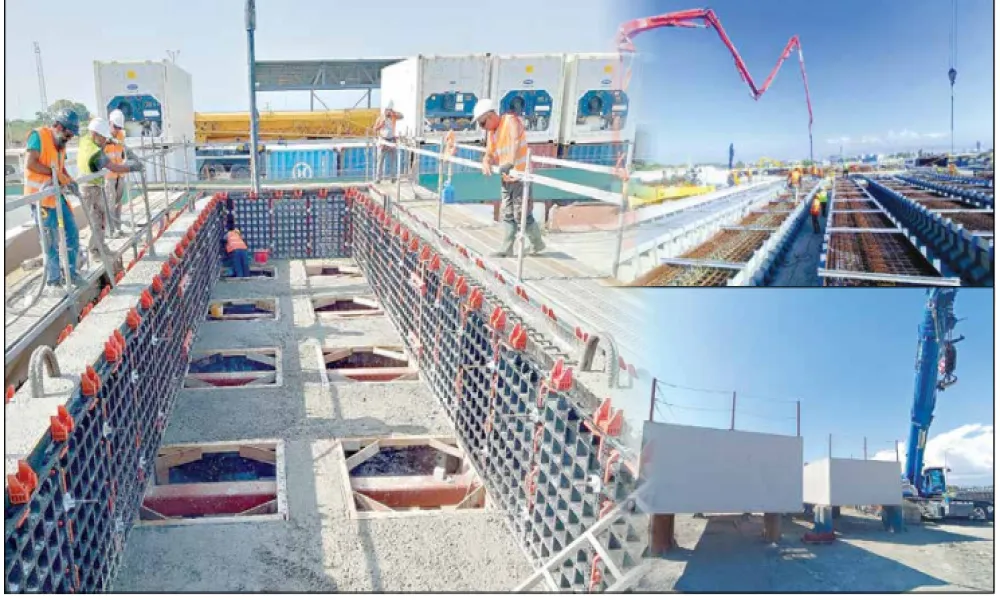Given the institutional decay and political opportunism that characterise public affairs in Cyprus, what would actually surprise citizens is if the infrastructure works for the Vasiliko LNG terminal had actually proceeded normally and been completed.
As cynical as it may sound, the “natural” and predictable course of a major project in this country - examples abound - is to remain suspended in limbo. A chaotic state between erosion and inertia, riddled with suspicions of mismanagement, scandalous handling, irregularities and, occasionally - so to speak - corruption.
That is why the reset of this particular project back to square one - and the resounding slap from the European Commission, that is now demanding the return of roughly 85% of the funds already disbursed, i.e. €67.2 million, raising the total loss to €101 million, about a third of the project’s total cost - is not really a source of shock to public opinion. Nor does it scandalise anyone that political parties casually trade barbs over “scrutiny, investigation and accountability,” a phrase so overused by politicians that it has virtually lost all meaning.
What went wrong, who is responsible, and how do we move forward?
For society at large, the essential questions are:
Firstly, what went wrong (again) with this contract, which was supposed to deliver Cyprus’ largest-ever energy project by July 2022?
Secondly, what degree of responsibility lies with the previous and the current governments for their handling of the matter?
Thirdly, will the half-finished project ever be completed? When will natural gas finally arrive - a transitional fuel that may reduce electricity prices, but, given the loss of the EU grant, is unlikely to justify the capital expenditure before hydrogen or another greener fuel takes hold?
“It’s not our fault, it’s theirs”
Nikos Anastasiades: “What mattered to me was the decision we took that LNG infrastructure had to be fast-tracked. It wasn’t my job to get involved in studies carried out by specialist firms on behalf of DEFA and ETYFA.”
George Papanastasiou: “Our effort is to get the terminal operational and bring natural gas to Cyprus. Investigations and apportioning blame are not our priority right now.”
Both the government of Nikos Christodoulides and that of his predecessor, Nicos Anastasiades, are effectively washing their hands of responsibility for this major scandal.
Anastasiades’ stance
The former president told Politis that the government set the political direction while technocrats designed and implemented the project with the guidance of international consultants - so, “where is my responsibility?” He stressed he did not involve himself with subcontracts or studies prepared by DEFA and ETYFA. His role, as he said, was the political decision to fast-track the project and approve an additional €25 million, part of a contractor’s €100 million claim linked to pandemic-related supply-chain costs. The Central Committee on Changes and Claims approved this sum at DEFA’s request, with its legal adviser’s consent.
The Odysseas interventions
On the contentious November 2019 meeting at the Presidential Palace - just a month before the CPP contract was signed - where then Auditor-General Odysseas Michaelides called for cancellation due to procedural irregularities, Anastasiades confirmed he gave the green light for the contracts. He blamed Michaelides for undermining the credibility of the Audit Office through excessive interference in projects large and small. “We had the authority to decide, and the Attorney General saw no problem. Was I to override international consultants’ studies? My concern was to bring natural gas as quickly as possible for the wider benefit,” he added.
On whether he was ever concerned about red flags during implementation, Anastasiades replied: “The only issue was the €25 million. Knowing the Auditor-General’s record of interference, I did not see it as grounds to cancel the project and delay natural gas by a century.” He concluded that “with the European Public Prosecutor’s Office now investigating, if anyone is implicated, they will not escape.”
Lakkotrypis: Checks and balances were in place
Former Energy Minister George Lakkotrypis noted that during his tenure, structures were created to ensure transparency. The project’s Advisory Management Committee included ministry directors-general, DEFA/ETYFA representatives, as well as observers from the Attorney General’s Office, the Audit Office, and the Treasury, alongside international consultants. Their mandate covered tender preparation and project oversight.
Christodoulides’ plans
Incumbent President Nikos Christodoulides, a member of the previous government throughout the decade, has so far relied on shallow communication tactics, hoping that with a “Plan B” or “Plan C” the project will eventually be completed - and that, when gas finally arrives, responsibility will be swept under the carpet amid public euphoria. Still, it was under his watch that the EU pulled funding and demanded repayment.
Former government officials argue that Energy Minister George Papanastasiou’s decision to terminate the CPP contract, together with Michaelides’ earlier findings that triggered CINEA and EPPO investigations, are directly to blame for the collapse and the loss of the grant.
Papanastasiou: Past mistakes led us here
Papanastasiou disagrees. Speaking before Parliament in early September, he said “the blame is not one-dimensional” and stressed that “past mistakes brought us here.” He admitted timelines are now uncertain but pledged the government is focused on completing the project. On television last Friday, he added: “Our efforts are focused on recovering the vessel, which is a major asset for Cyprus. That is why the priority is to make the terminal operational and bring natural gas. Investigations and blame are not our ministry’s priority right now.”
Blame shifted to the consortium
For now, all sides find it convenient to pin the blame on the Chinese consortium. The dispute is before the London Court of Arbitration, with the consortium seeking an additional €200 million and Cyprus counter-claiming the same amount. If Cyprus wins, everyone will claim vindication; if not, Pandora’s box will open - alongside the looming decisions of the European Public Prosecutor’s Office.
